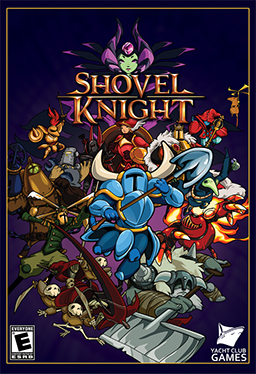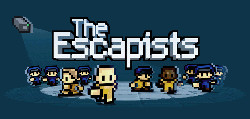
Doom II, also known as Doom II: Hell on Earth, is a first-person shooter game in the Doom franchise developed by id Software. It was released for MS-DOS in 1994 and Macintosh in 1995. Unlike the original Doom, which was initially only available through shareware and mail order, Doom II was sold in stores.

Saints Row is a 2006 action-adventure game developed by Volition and published by THQ for the Xbox 360. It was released in North America on August 29, 2006, followed by an Australian release two days later and a European release on September 1, 2006. Set within the fictional city of Stilwater, the single-player story follows a player-created character who joins the 3rd Street Saints gang after they save his life, and helps them rise to prominence by undermining enemy criminal syndicates, while slowly building up his own reputation within the gang. The storyline is non-linear, and divided into three separate story arcs for each rival gang that the player must defeat.

Cars is a 2006 adventure racing game published by THQ. The game is based on the 2006 film of the same name. It was released for the PlayStation 2, GameCube, Xbox, Microsoft Windows, Game Boy Advance, Nintendo DS, and PlayStation Portable in June 2006, with versions for the Xbox 360 and Wii released later that year. The Wii version includes functionality geared towards its Wii Remote controller and was a launch game for the system. Taking place after the events of the film, the game follows Lightning McQueen as he participates in the new racing season with his goal set on finally winning the Piston Cup. While doing so, he races and trains with the local community of Radiator Springs.

Bionicle Heroes is a 2006 video game published by Eidos Interactive and TT Games Publishing and based on Lego's Bionicle line of constructible action figures. The game was released in November 2006 on PlayStation 2, Xbox 360, GameCube, Microsoft Windows, Game Boy Advance, and Nintendo DS; a Nintendo Wii version was later released in April 2007. The home console and PC versions were developed by Traveller's Tales, while Amaze Entertainment developed the handheld versions. A version of the game for mobile phones, developed by Universomo, was also released. The home console and PC versions of the game are third-person shooters, while the Game Boy Advance version is a run 'n' gun shoot 'em up and the Nintendo DS version is a first-person shooter. The story of Bionicle Heroes, where the player seeks to liberate the island of Voya Nui and its inhabitants from the villainous Piraka, is not canon to the official Bionicle story.

Gangsters 2: Vendetta is a real-time strategy video game, developed by Hothouse Creations, published by Eidos Interactive, and released for Microsoft Windows in June 2001. The sequel to Gangsters: Organized Crime, and set during the final years of Prohibition, the game focuses on a story of the son of a local mob boss, who goes on a vendetta against the men who ordered their assassination, effectively becoming their own mob boss in the process. The game received mixed reviews on release.

Saints Row is a series of American action-adventure video games created by Volition and published by THQ and Deep Silver. The series follows the 3rd Street Saints, a fictional street gang originally operating out of the Saints Row district, hence the series' title.

Red Dead is a series of Western-themed action-adventure games published by Rockstar Games. The first entry in the series, Red Dead Revolver, was released on the PlayStation 2 and Xbox in May 2004. Originally developed by Capcom, Red Dead Revolver borrowed elements from their 1985 arcade title Gun.Smoke, to which it was intended to be a spiritual successor, but the game was cancelled in 2002. Subsequently, after acquiring the rights, Rockstar purchased Red Dead Revolver and expanded on it.

Ben 10: Omniverse is an action video game based on the American animated series of the same name. The game was published by D3 Publisher in North America and Namco Bandai Games in Europe and Australia. It was released in November 2012 for PlayStation 3, Xbox 360, Nintendo DS, Nintendo 3DS, Wii, and Wii U.

Omerta – City of Gangsters is a simulation game with turn-based tactical game-play elements developed by Haemimont Games and published by Kalypso Media for Microsoft Windows, Mac OS X and the Xbox 360. The game was released in German-speaking countries on 31 January 2013. The international German download version for Windows was released through the Steam-service as well. The English version was released just a day after in the rest of Europe, and in Australia on 7 February for the PC version, whereas the version for the US market was released on 12 February, followed by the release of the Xbox 360 version in Australia the day after. A version for Mac OS X was published on 2 August 2013.

Saints Row IV is a 2013 action-adventure game developed by Volition and published by Deep Silver. It is the sequel to 2011's Saints Row: The Third, the fourth installment of the Saints Row series, and the final main installment in the original series that began with the original game. The game was released in August 2013 for Microsoft Windows, PlayStation 3, and Xbox 360, and was later ported to PlayStation 4, Xbox One, and Linux in 2015. A Nintendo Switch port was released on March 27, 2020, and a Google Stadia port was released on November 1, 2021.

Shovel Knight is a platform video game developed and published by Yacht Club Games. Development was crowdfunded and the game was released for Nintendo 3DS, Wii U, and Windows in June 2014. It was ported to OS X and Linux in September 2014, PlayStation 3, PlayStation 4, PlayStation Vita, and Xbox One in April 2015, Amazon Fire TV in September 2015, and Nintendo Switch in March 2017. Shovel Knight is inspired by gameplay and graphics of platformer games developed for the Nintendo Entertainment System.

Rogue Legacy is a 2013 platform game with roguelike elements developed and published by Cellar Door Games. The game was released for Microsoft Windows, Linux, OS X, PlayStation 3, PlayStation 4, PlayStation Vita, Xbox One, Nintendo Switch, and iOS. A sequel, Rogue Legacy 2, was released on April 28, 2022 for Microsoft Windows, Xbox Series X/S and Xbox One.

Tales from the Borderlands is an episodic interactive comedy graphic adventure sci-fi video game based on the Borderlands series. It was developed by Telltale Games under license from Gearbox Software, the developer of the Borderlands series, and 2K, its publisher. The game was released in November 2014 for Android, iOS, Microsoft Windows, OS X, PlayStation 3, PlayStation 4, Xbox 360, Xbox One, and in 2021 for Nintendo Switch.

Minecraft: Story Mode is an episodic point-and-click video game developed and published by Telltale Games, based on Mojang Studios' sandbox video game Minecraft. The first five episodes were released between October 2015 through March 2016 and an additional three episodes were released as downloadable content (DLC) in mid-2016. A second season consisting of five episodes was released in 2017.

The Escapists is a strategy game played from a top-down perspective. The game was developed by Mouldy Toof Studios and following a Steam Early Access release in 2014, was released in 2015 for Microsoft Windows, macOS, Linux, Xbox 360, Xbox One and PlayStation 4. It was released on iOS and Android in 2017. A Nintendo Switch version of the game containing all downloadable content was released in 2018. The game was launched on the Epic Games Store on 23 September 2021, with the weekly free game campaign of Epic Games. Players assume the role of an inmate and must escape from prisons of increasing difficulty.

Romero Games Ltd. is an Irish independent video game development studio that was established on 11 August 2015 by husband-and-wife team John Romero and Brenda Romero and is located in Galway, Ireland. This is the ninth game studio Romero has established in his career, and currently it has released four titles.

Ittle Dew 2 is an action-adventure game developed by Swedish indie studio Ludosity and originally published by Nicalis, and the sequel to the 2013 title Ittle Dew. Ittle Dew 2 was released for Microsoft Windows, PlayStation 4, and Xbox One on November 15, 2016. An updated version of the game entitled Ittle Dew 2+ was released for the Nintendo Switch on November 14, 2017; the updated content was eventually released on the Windows version on May 26, 2019. The Nintendo Switch is the only platform that received a physical release of the game.

Nickelodeon Kart Racers is a 2018 racing game developed by Bamtang Games and published by GameMill Entertainment in North America and Maximum Games in Europe. The game features Nickelodeon characters in a crossover, including SpongeBob SquarePants, Hey Arnold!, Teenage Mutant Ninja Turtles, and Rugrats. The game was released in North America on October 23, 2018 and in Europe on October 26, 2018 for Nintendo Switch, PlayStation 4, and Xbox One. A sequel, Nickelodeon Kart Racers 2: Grand Prix, was released in October 2020. A third entry, Nickelodeon Kart Racers 3: Slime Speedway, was released on October 14, 2022.

River City Girls is a 2019 beat 'em up video game developed by WayForward and published by Arc System Works. A spin-off in the Kunio-kun franchise, the game stars Misako and Kyoko who fight their way through enemies and obstacles to rescue their kidnapped boyfriends, series protagonists Kunio and Riki. The game was released for the Nintendo Switch, PlayStation 4, Windows, and Xbox One in September 2019, and for Amazon Luna in October 2020. A PlayStation 5 version was released on January 18, 2022.

Puyo Puyo Tetris 2 is a puzzle video game developed and published by Sega. It's an installment in the Puyo Puyo series and a direct sequel to Puyo Puyo Tetris. The game was released for Nintendo Switch, PlayStation 4, PlayStation 5, Xbox One, and Xbox Series X/S on December 8, 2020 with a Windows version released on March 21, 2021. The game was released to generally positive reviews.



















